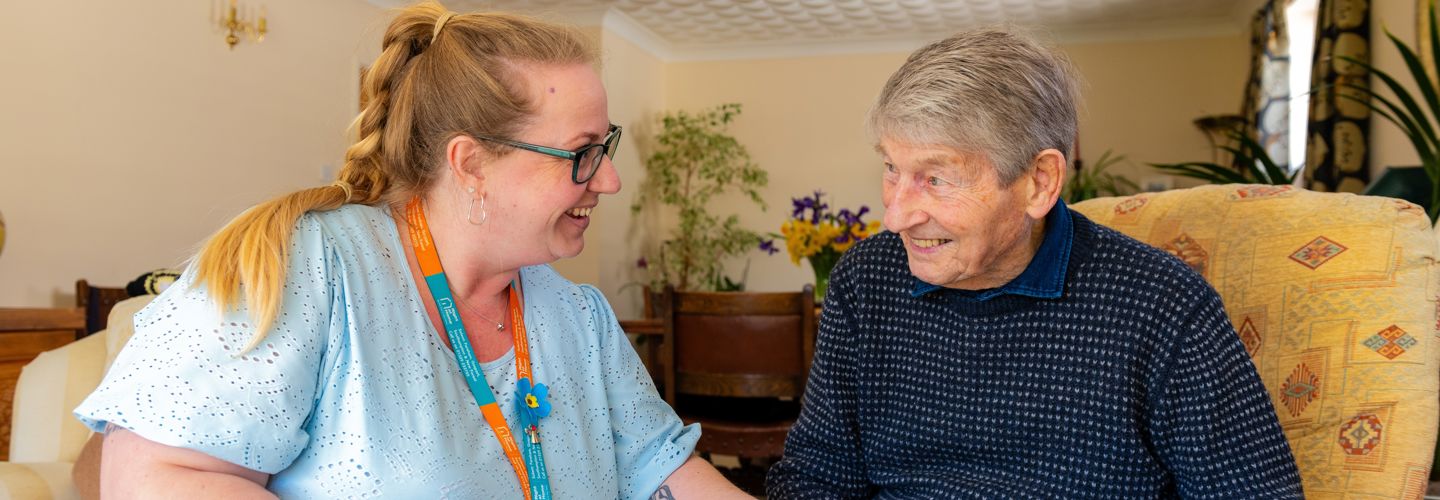
Starting the Conversation: Talking to Ageing Parents About Home Care
Published: 29/07/2025
Starting a conversation about care with an elderly parent or loved one can feel daunting. At Right at Home Reigate and Crawley, we understand that many older adults are initially resistant to the idea of receiving support—often because they value their independence or are unaware of how much their needs have changed. However, timely, compassionate care can make all the difference in helping them live safely, comfortably, and with dignity at home.
Why Do Older Adults Resist Care?
It's common for elderly individuals to be in denial about their increasing care needs. They may say they’re “fine” even when there are signs of decline in:
- Nutrition and hydration – missed meals, weight loss, or signs of dehydration
- Personal hygiene – unwashed clothing, body odour, or neglected grooming
- Home environment – clutter, safety hazards, or poor cleanliness
- Medication management – missed doses or confusion over prescriptions
- Social isolation – lack of engagement or increasing loneliness
These concerns, if left unaddressed, can contribute to a rapid decline in health and well-being. Proactive home care not only helps manage these daily tasks but also promotes confidence, connection, and independence.
Starting the Conversation: A Kind and Gentle Approach
When approaching this sensitive topic, empathy and patience are key. Here are some practical tips:
1. Pick the Right Moment
Choose a calm, private setting when your loved one is likely to be most receptive. Avoid raising the subject during stressful moments or family gatherings.
2. Be a Good Listener
Try to understand their fears or hesitations. Are they worried about losing control? Concerned about strangers in their home? Reassure them that care can be on their terms, designed around their preferences.
3. Focus on Their Goals
Frame care as a way to help them do more of what they enjoy: staying in their own home, maintaining their routine, or feeling confident after an illness or hospital discharge.
4. Introduce a Trial Period
Suggest trying a short-term trial of care services to see how it feels. Many clients warm up to the idea once they realise how helpful and respectful professional caregivers can be.
5. Share the Benefits
Let them know that care can help with:
- Reliable meal preparation and hydration support
- Assistance with personal care in a dignified way
- Light housekeeping and medication reminders
- Encouraging gentle exercise and mobility
- Reducing loneliness through regular companionship
- Spotting health concerns early and referring to GPs or specialists
6. Involve Them in the Process
Include your loved one in choosing the care provider and planning their care. At Right at Home, we offer person-centred care—where the client’s voice and choices matter.
Compassionate Care That Builds Trust
Our local, professional CareGivers at Right at Home Reigate and Crawley are trained to offer care with respect, empathy, and kindness. We match clients with a small, consistent team of CareGivers who build strong relationships and truly get to know the person they support.
Whether it’s a few visits a week or more regular daily care, our services are flexible and tailored to meet changing needs over time.
Talk to Us Today
If you’re unsure how to start the conversation or would like to arrange a trial of our home care services, we’re here to help. Visit our page for more information about our services https://www.rightathome.co.uk/reigatecrawley/the-services-we-offer/
Call our friendly team today on 01737 906012 or visit our office in Redhill.
Let us help your loved one stay safe, well, and connected—right at home.
